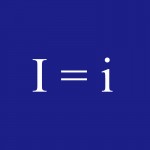 Being No One is a substantial work by German philosopher Thomas Metzinger about “consciousness, the phenomenal self, and the first-person perspective.” Its main thesis “is that no such things as selves exist in the world. Nobody ever was or had a self.”
Being No One is a substantial work by German philosopher Thomas Metzinger about “consciousness, the phenomenal self, and the first-person perspective.” Its main thesis “is that no such things as selves exist in the world. Nobody ever was or had a self.”
I have spent some time with the book, making, from its 634 densely-printed pages, 104 pages of notes. After all that, I still question Metzinger’s ‘main thesis.’ But I have no doubts about the value of the book. It irrevocably raises the standard for what philosophy of mind must explain. In its early pages, Metzinger echoes Paul Churchland’s complaint, that “theoretical approaches to the mental, still intuitively rooted in folk psychology, have generated very little growth of knowledge in the last twenty-five centuries.” Being No One goes a long way towards burying that era. Continue reading “Metzinger: Being No One”

